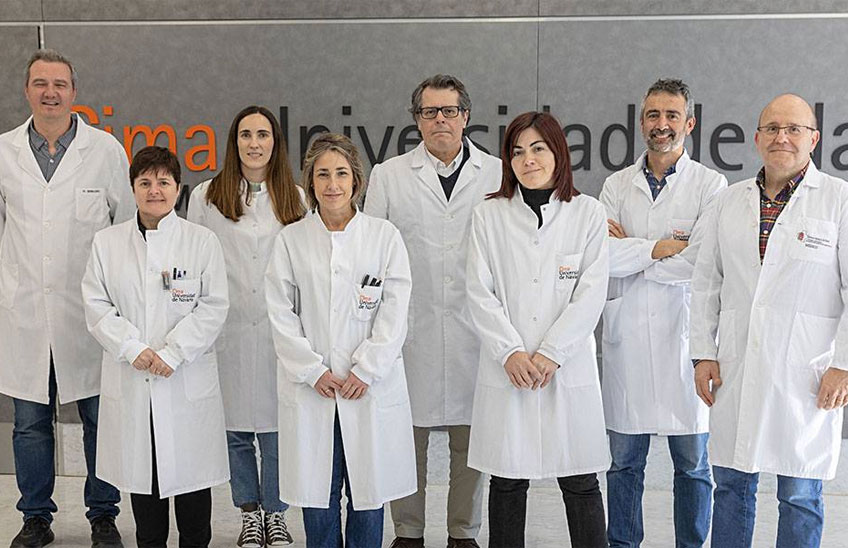New experimental therapy for acute pancreatitis based on messenger RNAs
Researchers from Cima University of Navarra, in partnership with the biopharmaceutical company Moderna Therapeutics, demonstrate that this treatment reduces pancreatic and liver damage in animal models.

14 | 02 | 2025
Researchers from Cima University of Navarra, in partnership with the multinational biopharmaceutical company Moderna Therapeutics, have developed an innovative therapeutic strategy based on messenger RNA (mRNA) for the treatment of acute pancreatitis.
Pancreatitis consists of inflammation of the pancreas, which may vary from mild episodes to severe cases requiring hospitalization. In this disease, the pancreatic tissue self-destructs when digestive enzymes that normally function in the intestine are activated prematurely. Every year thousands of people suffer from this disease, many of whom develop complications that affect other vital organs, such as the liver and lungs.
Cima's strategy, published in the latest issue of the scientific journal Journal of Translational Medicineis based on the administration of lipid nanoparticles that carry mRNA to produce two proteins (FGF21 and APOA1) in the liver. These molecules play a key role in the regulation of metabolism and inflammation, making them promising targets for the treatment of acute pancreatitis, a disease with no specific therapeutic options beyond symptom control.
"The results of our study show that the administration of FGF21 and APOA1 mRNA reduces pancreatic and liver damage in experimental models of acute pancreatitis, suggesting a protective and anti-inflammatory effect," explains Dr. Amaya López-Pascual, postdoctoral researcher in the group of Hepatology: Metabolism, Epigenetics and Carcinogenesis at Cima of the Cima and first author of the article.
This work has counted with the participation of the University Hospital of Navarra, the research center Biomedica en network de Enfermedades Hepáticas y Digestivas (CIBEREHD) and the Instituto de research Sanitaria de Navarra (IdiSNA). As Dr. Jesús Urman, specialist of the Digestive Service of the University Hospital of Navarra and partner in the research, states, "these experimental observations are important from the clinical point of view, as there are currently no effective treatments available for patients with pancreatitis".
Application in other inflammatory pathologies
"The findings of our study open up new possibilities for the use of mRNA in the treatment of this and other inflammatory and metabolic diseases, which will improve the health and quality of life of patients," adds Dr. Matías Ávilaco-director of the study together with Dr. Pedro Berraondo.
In the authors' opinion, this work reflects the positive impact of the partnership between academic research and the biotechnology industry. "The participation of Moderna, a leader in mRNA technology, has been a core topic for the development of these formulations, while the experience of the academic groups in liver and pancreatic diseases has allowed validation of their application in experimental models," the authors conclude.




